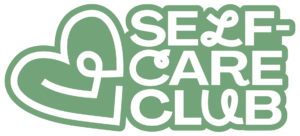Student Support
TCC’s Student Support programs are intended for FDU students who need a little extra support, want to create a more fulfilling college experience, or just want to learn some new life skills. These events are only open to students. Learn more about the programs on this page, and check the Student Life calendars to find out when the program sessions are scheduled.
Healing Paws
Researchers have found a direct connection between interacting with animals and positive health benefits. Creature Comfort Pet Therapy’s goal is to enhance people’s lives through therapeutic visits with caring volunteers and their pets. They embrace a hands-on approach with participants and their volunteer therapy teams. Dates TBD.
To find event dates, search on your campus student life calendar for Healing Paws.
Self-Care Club
 Come by the TCC space for a chance to talk with peers about various topics relating to college life. Meet new people and get support from other FDU undergraduate students and graduate group facilitators. Drop in to one session or come to them all!
Come by the TCC space for a chance to talk with peers about various topics relating to college life. Meet new people and get support from other FDU undergraduate students and graduate group facilitators. Drop in to one session or come to them all!
Back to School Transition: Chat with fellow undergraduate students and graduate student facilitators about the positives and negatives of a new school year. Discussion will cover being social at FDU and successfully planning for the semester.
Self-Care: Taking care of yourself in college can be hard but is so important. This week will allow students to talk about stressors in their lives and how to implement self-care to offset them. Clinical psychology doctoral student facilitators will share self-care tips.
Staying Active: What are ways that you like to stay active, and what can be hard about making this part of your routine? Come discuss both the importance and challenge of staying active, how being active looks different for everyone, and learn about different reasons being active is important.
Midterm Prep: Midterms are around the corner, and it can be hard to stay organized. Come chat about what does and doesn’t work for you while studying, learn from peers, and receive some midterm study supplies.
Finding Community: Finding community can be both challenging and rewarding. The group this week will discuss what community is and what different people find to be important about it. Students will be able to meet other students, learn about them, and chat about finding community both at FDU and outside of it.
Healthy Relationships: What is a healthy relationship? Does it look different if you’re thinking about friends vs. family vs. romantic partners? This week will allow students to learn about healthy relationships and problem-solve different challenges that arise in their own relationships.
Mental Health Check-In: What is mental health and why is it important? This is the point in the semester when many people are feeling stressed, and clinical psychology doctoral student facilitators this week will teach about mental health and invite students to share their own experiences and ask questions.
Professional Development: Group this week invites you to think about your future career aspirations and how you might get there. Resumes, work experiences, and how to plan for success will be covered. Members of FDU staff will join to discuss professional development.
Wrapping Up the Semester: The last group of the semester invites you to reflect on the semester so far and chat with peers about the ups and downs.
It’s all about Self-Care
Self Care Recipe
You gotta nourish to flourish
- A spoonful of Self-love
- A dollop of Kindness
- A sprinkle of Courage
- A dash of Acceptance
- A drizzle of Patience
- A cup of Honesty
- An ounce of fresh air
- A gallon of sunlight
- Five deep breaths
- Mix well and consume daily
Self-Care Tips
Don’t let idiots ruin your day
- Listen to music
- Go for a walk
- Read a book
- Explore a new place
- Volunteer and help others
- Learn something new
- Spend time with family and friends
- Get plenty of hugs or cuddle a pet
- Take time to do things you love
Self-Care Checklist
You can make a fresh start any day. Even a Tuesday.
- Got enough sleep
- Moved my body
- Had nourishing meals
- Drank sufficient water
- Spent time outside
- Connected with friends or family
- Practiced good hygiene
- Unplugged from social media and the news
- Took deep breaths
- Did something brought me happiness